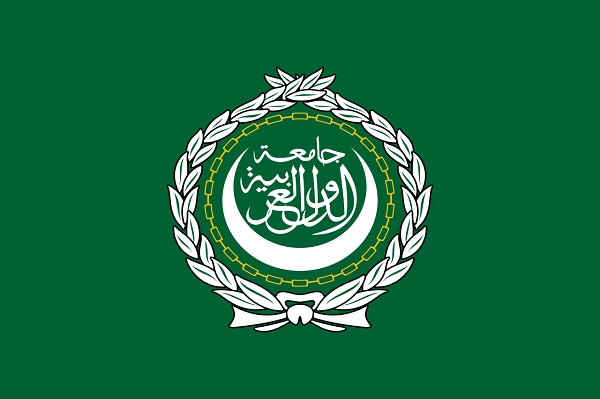
India, Arab nations condemn terrorism in all forms
 New Delhi:(IANS) India and the Arab League member states on Sunday condemned terrorism in all its forms and manifestations, including cross-border terrorism, and also called for urgent reforms in the UN Security Council.
New Delhi:(IANS) India and the Arab League member states on Sunday condemned terrorism in all its forms and manifestations, including cross-border terrorism, and also called for urgent reforms in the UN Security Council.
“The #ManamaDeclaration condemns terrorism in all its forms and rejects associating terrorism with any religion,” external affairs ministry spokesman Vikas Swarup tweeted.
The declaration was adopted after the first ever ministerial-level meeting of the India-Arab Partnership Conference in Bahrain’s capital Manama on Sunday, which was attended by External Affairs Minister Sushma Swaraj.
The Arab League comprises 22 countries in Middle East and northern Africa – Algeria, Bahrain, Comoros, Djibouti, Egypt, Iraq, Jordan, Kuwait, Lebanon, Libya, Mauritania, Morocco, Oman, the State of Palestine, Qatar, Saudi Arabia, Somalia, Sudan, Syria, Tunisia, the United Arab Emirates and Yemen.
The relationship between India and the Arab countries has been taken to the next level called India-Arab Partnership Conference, four meetings of which have already been held with New Delhi hosting the last one in 2014 and the next conference scheduled to be held in Oman in May this year.
“The two sides condemned terrorism in all its forms and manifestations and rejecting associating terrorism with any religion, culture or ethnic group, emphasised the need for concerted regional and international efforts to combat terrorism and to address its causes and to develop a strategy to eliminate the sources of terrorism and extremism including its funding, as well as combating organised cross-border crime,” the Manama Declaration reads.
“They supported the efforts of the UN Counter-Terrorism Committee (CTC) and adoption of the Comprehensive Convention on International Terrorism (CCIT), at the earliest,” it states.
The Arab side also aspired “to an effective Indian role, in cooperation with Arab states, to enhance peace and security at the regional and international level”.
The declaration assumes significance as India is concerned over the deepening sectarian divide in the region and the growing footprint of terror groups like the Islamic State.
After Saudi Arabia executed a Shia cleric on charges of terrorism earlier this month, its missions in Iran came under attack and subsequently diplomatic ties between Riyadh and Tehran were cut off.
According to the Manama Declaration, the two sides recalled the historic and civilisational ties that exist between the Arab world and India and underlined the contribution of the commercial and cultural ties in binding the two sides together.
“They hailed the strong foundation, great potential and wide-ranging prospects for the Arab-Indian co-operation and the role this forum can play to advance Arab-India relations towards capacious horizons,” it states.
“They confirmed their commitment to maintain international peace and security and to achieve sustainable development and expressed their commitment to work together to tackle political and economic challenges through closer consultation, cooperation and coordination in various fields.”
Both the sides also called for urgent reforms of the UN Security Council through expansion in both permanent and non-permanent membership to reflect contemporary reality.
“They agreed that the current structure of the UN Security Council was not representative of a majority of the people of the world but continued to perpetuate a system that was anachronistic,” the declaration states.
India and the Arab countries reaffirmed their commitment to verifiable and non-discriminatory nuclear disarmament and the complete elimination of nuclear weapons and other weapons of mas destruction (WMDs) in an irreversible manner and agreed to strengthen collaboration to achieve this important objective according to relevant UN resolutions.
On the bilateral front, both sides recognised the need to hold more people-to-people interactions between the two sides, particularly exchanging youth delegations to share experiences and ideas about each other’s culture and traditions.
“It was also agreed to promote exchange of women’s delegations with a view to promote women empowerment,” the declaration states.
India and the Arab regional grouping also hoped to strengthen future cooperation in economic, trade and investment, within the framework of the existing mechanisms and further developing these mechanisms.
“In view of the great importance the two sides attach to enhance bilateral cooperation in the field of energy, they expressed hope to reach a memorandum of understanding in the field of energy in order to enhance cooperation in this field, especially in the field of renewable Energy,” it states.
“Both the sides desire to strengthen cooperation in the fields of science and technology, information and communication technology (ICT), environment, agriculture and food security, tourism, health and establishing the necessary mechanisms to enforce cooperation in these fields to achieve common interest of India and Arab countries,” the declaration reads.
On regional issues, the two sides expressed deep concern over the situation in Syria and called on Israel to end its occupation of the Palestinian “Arab” territories it seized in 1967.
